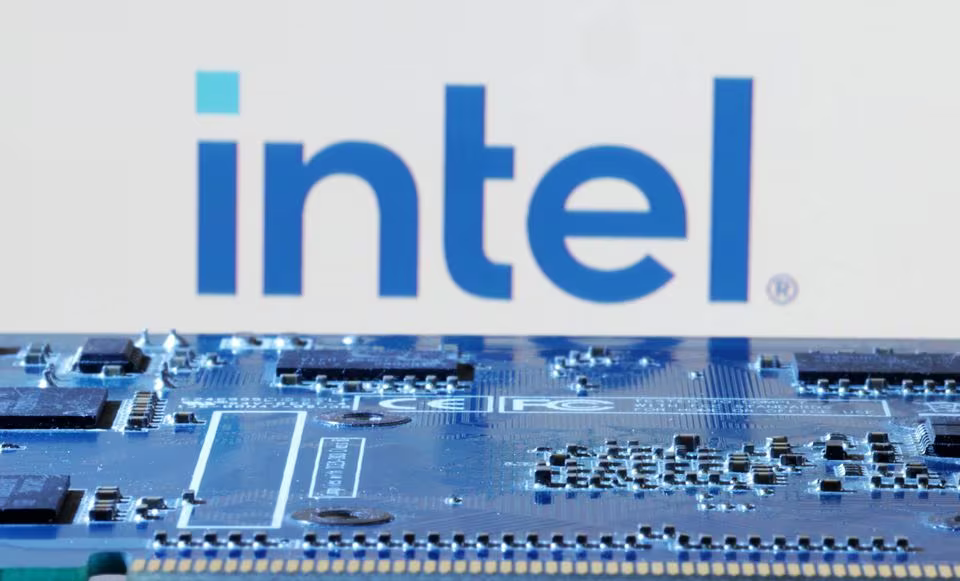
According to two people familiar with the case, Intel has withstood an attempt to block chip sales to Huawei worth hundreds of millions of dollars, allowing one of the biggest chipmakers in the world additional time to sell to the Chinese telecoms company that is highly sanctioned.
President of the United States Joe Biden has been under pressure for a long time to withdraw a license that the Trump administration granted Intel (INTC.O) to export cutting-edge central processors to Huawei for use in laptops.
The pressure came from China hawks, who want to halt all sales to the Chinese company, and Intel rival Advanced Micro Devices (AMD.O), opens new tab, which claimed it was unjust that it did not acquire a license to sell identical chips to Huawei.
The fact that Intel managed to maintain its chip sales license while a competitor was unable to do the same shows how businesses must navigate an unpredictable and uneven landscape as the United States attempts to restrict Beijing’s access to advanced American technology, particularly for a company with a strong reputation like Huawei.
According to research, it has also allowed Huawei to maintain a little but increasing portion of the worldwide laptop market, while AMD lost out on hundreds of millions of dollars in sales to the Chinese-sanctioned company.
READ ALSO: PM of Haiti announces resignation following negotiations with Jamaica
“Any additional restrictions on it would make Huawei’s laptop offering quite challenging,” said Emma Xu, an analyst with technology market research firm Canalys. “The majority of the CPUs used in Huawei’s laptops is still from Intel.”
The White House, the Commerce Department, Intel, and Huawei all declined to comment. A request for response from AMD was not answered. The Chinese Embassy in Washington asked the US to “stop overstretching the concept of national security” in order to “suppress Chinese companies,” characterizing the restrictions on Huawei as “economic bullying.”
Due to suspected sanctions violations, Huawei—a symbol of Washington and Beijing’s protracted technological war—was added to the list of companies subject to trade restrictions by the Trump administration in 2019. In the past, Huawei has denied any wrongdoing.
The White House, the Commerce Department, Intel, and Huawei all declined to comment. A request for response from AMD was not answered. The Chinese Embassy in Washington asked the US to “stop overstretching the concept of national security” in order to “suppress Chinese companies,” characterizing the restrictions on Huawei as “economic bullying.”
Due to suspected sanctions violations, Huawei—a symbol of Washington and Beijing’s protracted technological war—was added to the list of companies subject to trade restrictions by the Trump administration in 2019. In the past, Huawei has denied any wrongdoing.
Why AMD was denied a license while Intel was granted one was not explained to Reuters. However, the effect on Huawei’s sales of CPU chips was rapid, as evidenced by an internal AMD presentation using data from NPD and GfK, which showed that the percentage of Huawei laptop sales using AMD chips fell from 47.1% in 2020 to 9.3% in the first half of 2023.
According to the presentation, Intel’s percentage of sales of Huawei laptops using its CPUs increased dramatically during that time, going from 52.9% to 90.7%.
As a result, the presentation stated that by early 2023, the two companies would have a “estimated revenue discrepancy” of up to $512 million.
Both GfK, which is currently controlled by NIQ, and Circana, the business formed last year from the merger of NPD and IRI, declined to comment.
When a government official stated in public that Huawei’s licensing policy was being reviewed and in private that the Commerce Department will resolve the licensing mismatch, it seemed as though the drive to revoke licenses would succeed last year, according to sources.
However, by late last year, the agency had abandoned its intentions to cancel licenses without giving a reason, according to a U.S. official and a person with knowledge of the situation. The official emphasized that the proposal might be brought back at a later time.
The Commerce Department postponed its plans to cancel Intel’s license, but Reuters was unable to find out why.
However, the move coincided with Washington’s efforts to mend fences with Beijing, including the resumption of military-to-military discussions, following the discovery of a Chinese spy balloon in American airspace last winter, which damaged ties between the two countries.
It is anticipated that Intel’s license would expire later this year, and sources indicate that a renewal is doubtful. Meanwhile, as can be seen on its website (opens new tab), Huawei continues to primarily rely on Intel CPUs for their laptops.
As of 2023, Huawei surpassed Dell to become China’s third-largest laptop manufacturer, with a sales share of 9.7%, up from 2.2% in 2018. This information is according to Canalys.
Editing by Chris Sanders and Anna Driver; additional reporting by David Kirton; reporting by Alexandra Alper



